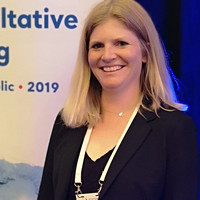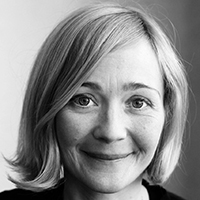We are very glad to announce that Lize-Marié Hansen van der Watt is the next Head of the Division History of Science, Technology and Environment as Sabine Höhler stepped down at the end of the year.
After six and a half years, Sabine Höhler stepped down as the head of the Division and leaves the position to Lize-Marié Hansen van der Watt. Lize-Marié has her doctorate from Stellenbosch university, South Africa and came to Sweden and the Division in 2012. Her research is within histories of polar pasts and polar futures, with a focus on the intersection between the environment, science, cultural heritage and critical geopolitics in the Arctic and Antarctica. Currently she leads the project Decay Without Mourning, Future Thinking Heritage Practices, an international research project with three teams based in Sweden, South Africa and Brazil. The project explores foregrounding decay as a central concern of heritage studies.

Lize-Marie has not only received external grants and published as single author and in collaboration with others during her time with us, but also held several commissions of trust at KTH. She has a good experience of our major tasks and the workings of Swedish academia.
A thing that sometimes causes confusion is that she publishes as Lize-Marié van der Watt, which is also her de facto name, but is often listed as Susanna Hansen van der Watt.
– Some things do not translate well in countries with highly digitalized bureaucracies, Lize-Marié says.

The appointment as head of division reaches from January 1st 2023 to December 31 in 2026. However, since Lize-Marié is expecting and will go on parental leave in March and for the rest of 2023, we are glad to announce Lina Rahm as the one to fill this position the first year. Lina arrived at the Division on a Ragnar Holm post doc during the pandemic and is now assistant professor with us since January 2022. Lina got her PhD in Linköping in 2019. Before that she worked within the cultural sector, where her focus was to make art and culture accessible to children and young people in small municipalities and regions. Lina’s research is focused on sociotechnical and educational imaginaries and she is currently activ in the Wallenberg (WASP HS) funded project AI Futures and Pasts: Educational and Ecotechnological Imaginaries.


No comments yet. Be the first to comment!